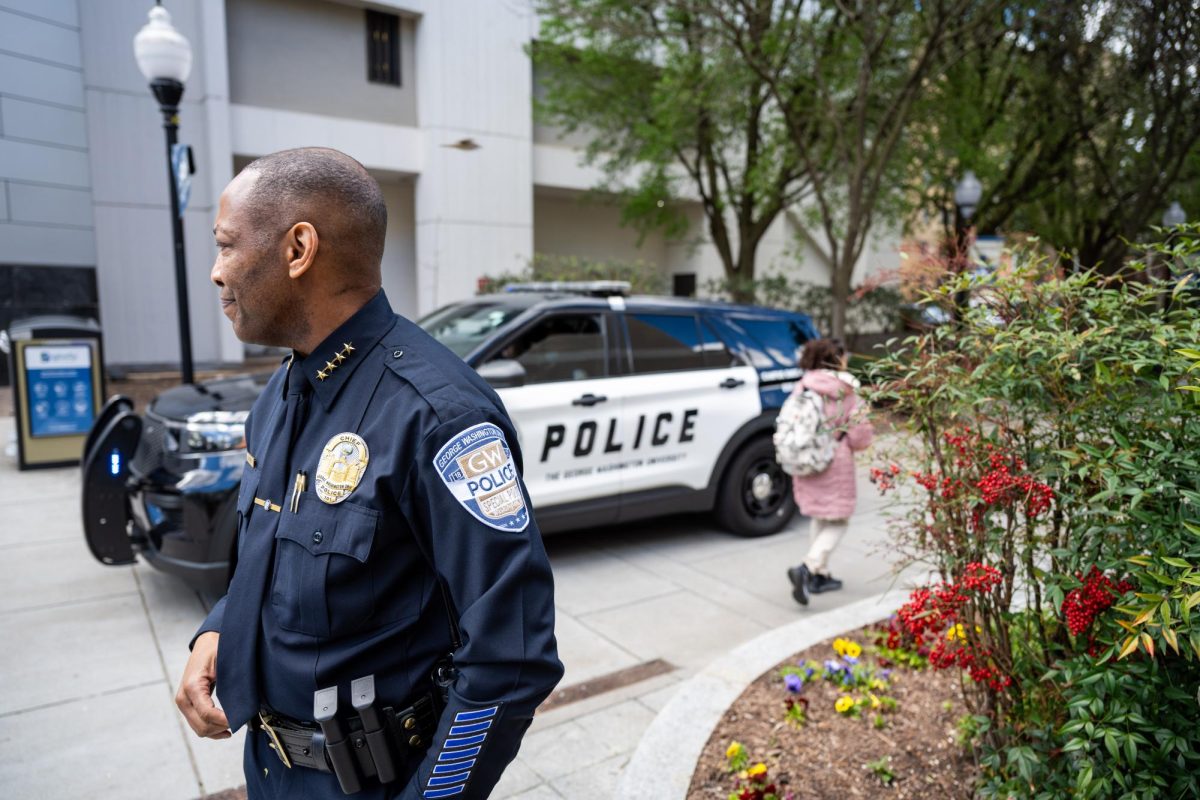The University unveiled a sweeping set of reforms and recommendations Friday that determined GW may need faculty background checks, added protections for minors and improved trustee training to meet the standards set by Penn State’s Freeh report.
GW’s 22-page report, resulting from a 14-month-long internal review, gave mostly positive reviews to leadership, compliance and culture in areas across the University, like the athletics department, University Police Department, Human Resources and Board of Trustees.
But the review also sets off a string of potential policy changes to avoid the kind of university-wide leadership failures that Louis Freeh’s law firm, Freeh Sporkin & Sullivan, found at Penn State after the Jerry Sandusky scandal.
GW could begin background checks on all faculty – which could take place as frequently as every five years.
That would put GW in line with its peer schools and help satisfy the Freeh report’s concerns that Penn State’s background checks were “significantly inadequate.” The University already conducts background checks on staff.
As part of the review, the University announced today that it already updated its policies for minors visiting campus earlier this fall, outlining the signs of abuse or neglect of minors, listing “dos” and “don’ts” for interacting with people under 18 years old and providing contact information to report suspicious activity.
To further increase security for children, the Freeh report calls for a university-wide protocol for working with minors on or off campus.
GW may also create a specific ban on viewing or storing pornography on “university information systems.” University policies already prohibit students and faculty from using GW computers in an “obscene, harassing, or otherwise inappropriate manner.”
But universities such as Johns Hopkins, Cornell and Dartmouth explicitly forbid using their information technology to access child pornography, and the University of Virginia bans retrieving any sexually explicit material.
The Department of Athletics and Recreation may also hire another to ensure GW complies with NCAA reporting rules.
The task force also recommended that the University should determine whether Board of Trustees members, donors, alumni and business people who sit on GW’s highest governing body, need more training. It also said GW should outline a protocol to tell the Board about issues that put GW at risk.
Douglas Shaw, an associate dean in the Elliott School of International Affairs, told the Faculty Senate on Friday that none of the recommendations identify “deficiencies,” and instead identifies “areas where we can improve ourselves.”
The University-wide review launched the effort in July 2012 under the leadership of Senior Vice President and General Counsel Beth Nolan and nearly a dozen other top administrators.
To carry out those recommendations, GW created another task force led by faculty members Toni Marsh and Shaw. That group has already changed or is working to change 18 University policies.
Friday’s recommendations also include the work by a dean-led committee that evaluated whether GW’s culture encouraged employees to report concerns of potential breaches of University policies.
That effort, led by former business school dean Doug Guthrie and nursing school dean Jean Johnson, interviewed each dean and vice president across the University.
That effort was quietly announced in November 2012, weeks after Knapp learned that GW’s admissions office had submitted false data about its incoming class quality. About eight months earlier, Knapp had also faced a GW Law School as more than a dozen professors outlined their complaints of their leadership.
GW is one of the first private universities in the nation to plan changes in light of the 2011 child sex abuse scandal. More than 60 other universities, mostly those with the country’s largest sports programs, have also reviewed and updated their practices after internal reviews.
– Brianna Gurciullo and Cory Weinberg contributed to this report




